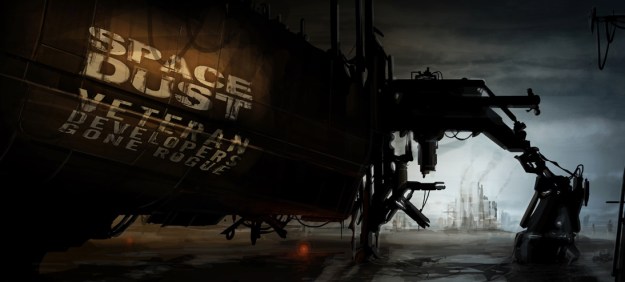 The past five years have seen the video game industry transform from a billion-dollar business fueled by the efforts of massive publicly-traded corporations like Electronic Arts and Ubisoft to one whose creative fate is almost entirely driven by the work of small independent studios. In many ways, the video game industry today looks like it did in 1985 when a game could be made by just one or two people in their basement. The difference between then and now is that making a game today is easier and more affordable. It’s strange to think that as recently as 2008, when indies were already on the rise, game making was prohibitively expensive and beholden to the big publishing machine.
The past five years have seen the video game industry transform from a billion-dollar business fueled by the efforts of massive publicly-traded corporations like Electronic Arts and Ubisoft to one whose creative fate is almost entirely driven by the work of small independent studios. In many ways, the video game industry today looks like it did in 1985 when a game could be made by just one or two people in their basement. The difference between then and now is that making a game today is easier and more affordable. It’s strange to think that as recently as 2008, when indies were already on the rise, game making was prohibitively expensive and beholden to the big publishing machine.
Even though it’s harrowing to watch small studios get shut down in the wake of a massive publisher’s closure, it’s exciting to see the small ones that pop up from the ashes, like the newly formed Space Dust Studios.
According to GamesIndustry International, Space Dust Studios, a new studio opened in Melbourne, Australia, has a core staff of five developers whose mutual backgrounds cover the gamut of big game publishing. One of these developers is Nathan Brown, formerly the art director of EA Visceral Melbourne. That studio was closed in late 2011 after completing work on the original Dead Space and the deeply bizarre God of War-clone, Dante’s Inferno.
“Our medium scale PC project has a planned eighteen-month development cycle, and will require significant local staffing resources during production,” reads a letter written by Brown to the Australian Interactive Games Fund. “We also have interest from talented senior developers who are eager to return to Melbourne and join our project.”
Of the five senior team members at Space Dust, the others, besides Brown, come from studios like Crystal Dynamics, Atari, and Criterion Games.
The 18-month development cycle is coming back into vogue alongside the rise of small independent development houses. Many of the games that have received massive amounts of public funding through Kickstarter are built on the same mold pitched by Space Dust. Wasteland 2 is expected out on that schedule, as is Shadowrun Returns.
The Melbourne development community was struck particularly hard by the changing economics of the video game business. EA Visceral Melbourne was just one of three studios that were shut down in 2011. Long before THQ disintegrated, it had shut down Blue Tongue Entertainment (DeBlob) and THQ Studios Australia (Avatar: The Last Airbender) that same year, dispersing around 200 Australian games professionals.


